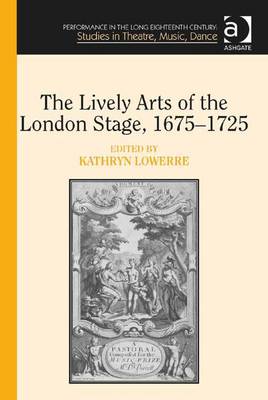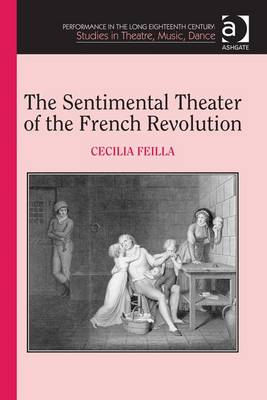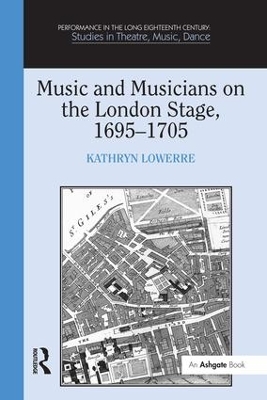Performance in the Long Eighteenth Century: Studies in Theatre, Music, Dance
3 total works
The Lively Arts of the London Stage, 1675-1725
by Professor Kathryn Lowerre and Dr. Jane Milling
Unlike collections of essays which focus on a single century or whose authors are drawn from a single discipline, this collection reflects the myriad performance options available to London audiences, offering readers a composite portrait of the music, drama, and dance productions that characterized this rich period. Just as the performing arts were deeply interrelated, the essays presented here, by scholars from a range of fields, engage in dialogue with others in the volume. The opening section examines a famous series of 1701 performances based on the competition between composers to set William Congreve's masque The Judgment of Paris to music. The essays in the central section (the 'mainpiece') showcase performers and productions on the London stage from a variety of perspectives, including English 'tastes' in art and music, the use of dance, the depiction of madness and masculinity in both spoken and musical performances, and genres and modes in the context of contemporary criticism and theatrical practice. A brief afterpiece looks at comic pieces in relation to satire, parody and homage. By bringing together work by scholars of music, dance, and drama, this cross-disciplinary collection illuminates the interconnecting strands that shaped a vibrant theatrical world.
Smoothly blending performance theory, literary analysis, and historical insights, Cecilia Feilla explores the mutually dependent discourses of feeling and politics and their impact on the theatre and theatre audiences during the French Revolution. Remarkably, the most frequently performed and popular plays from 1789 to 1799 were not the political action pieces that have been the subject of much literary and historical criticism, but rather sentimental dramas and comedies, many of which originated on the stages of the Old Regime. Feilla suggests that theatre provided an important bridge from affective communities of sentimentality to active political communities of the nation, arguing that the performance of virtue on stage served to foster the passage from private emotion to public virtue and allowed groups such as women, children, and the poor who were excluded from direct political participation to imagine a new and inclusive social and political structure. Providing close readings of texts by, among others, Denis Diderot, Collot d'Herbois, and Voltaire, Feilla maps the ways in which continuities and innovations in the theatre from 1760 to 1800 set the stage for the nineteenth century. Her book revitalizes and enriches our understanding of the significance of sentimental drama, showing that it was central to the way that drama both shaped and was shaped by political culture.


